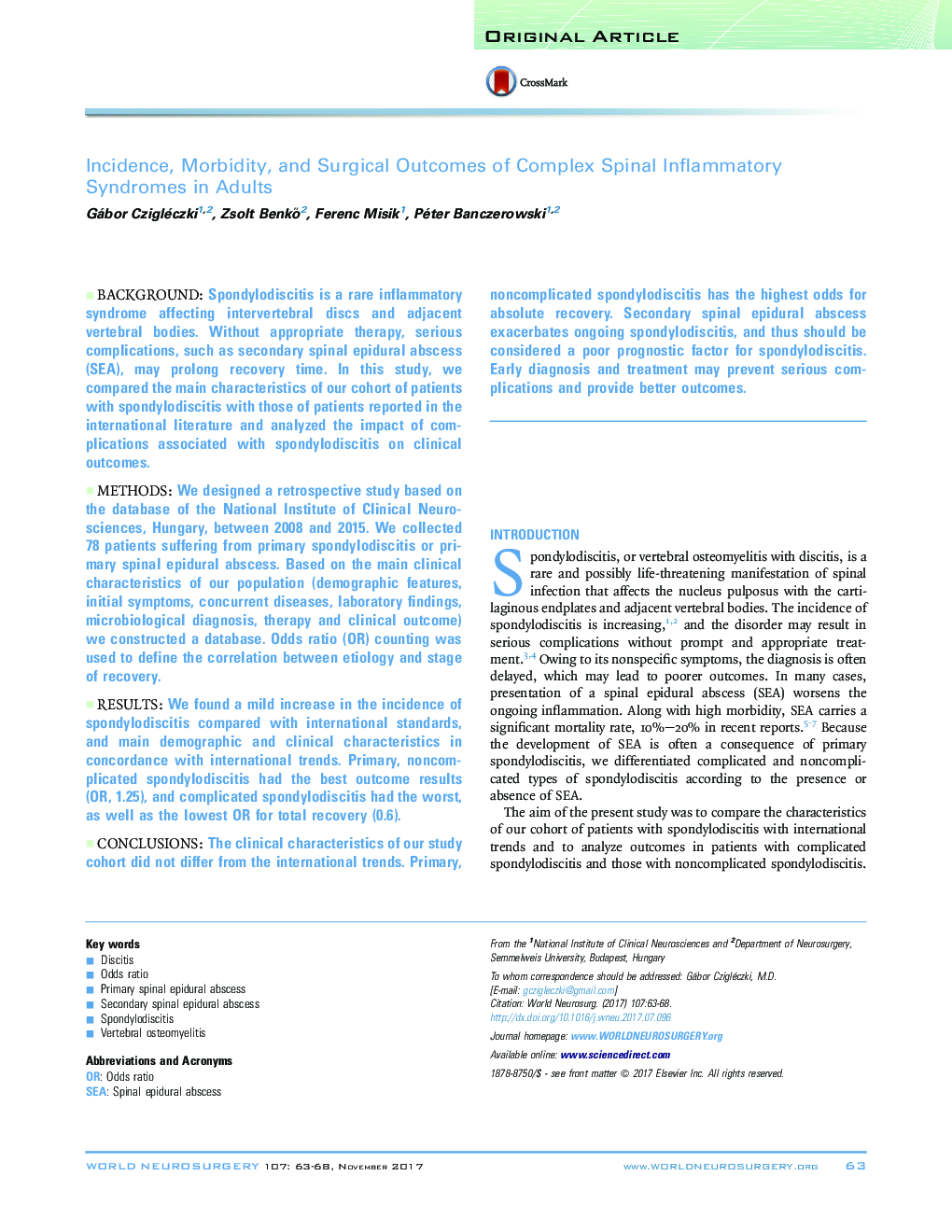| Article ID | Journal | Published Year | Pages | File Type |
|---|---|---|---|---|
| 5633856 | World Neurosurgery | 2017 | 6 Pages |
BackgroundSpondylodiscitis is a rare inflammatory syndrome affecting intervertebral discs and adjacent vertebral bodies. Without appropriate therapy, serious complications, such as secondary spinal epidural abscess (SEA), may prolong recovery time. In this study, we compared the main characteristics of our cohort of patients with spondylodiscitis with those of patients reported in the international literature and analyzed the impact of complications associated with spondylodiscitis on clinical outcomes.MethodsWe designed a retrospective study based on the database of the National Institute of Clinical Neurosciences, Hungary, between 2008 and 2015. We collected 78 patients suffering from primary spondylodiscitis or primary spinal epidural abscess. Based on the main clinical characteristics of our population (demographic features, initial symptoms, concurrent diseases, laboratory findings, microbiological diagnosis, therapy and clinical outcome) we constructed a database. Odds ratio (OR) counting was used to define the correlation between etiology and stage of recovery.ResultsWe found a mild increase in the incidence of spondylodiscitis compared with international standards, and main demographic and clinical characteristics in concordance with international trends. Primary, noncomplicated spondylodiscitis had the best outcome results (OR, 1.25), and complicated spondylodiscitis had the worst, as well as the lowest OR for total recovery (0.6).ConclusionsThe clinical characteristics of our study cohort did not differ from the international trends. Primary, noncomplicated spondylodiscitis has the highest odds for absolute recovery. Secondary spinal epidural abscess exacerbates ongoing spondylodiscitis, and thus should be considered a poor prognostic factor for spondylodiscitis. Early diagnosis and treatment may prevent serious complications and provide better outcomes.
